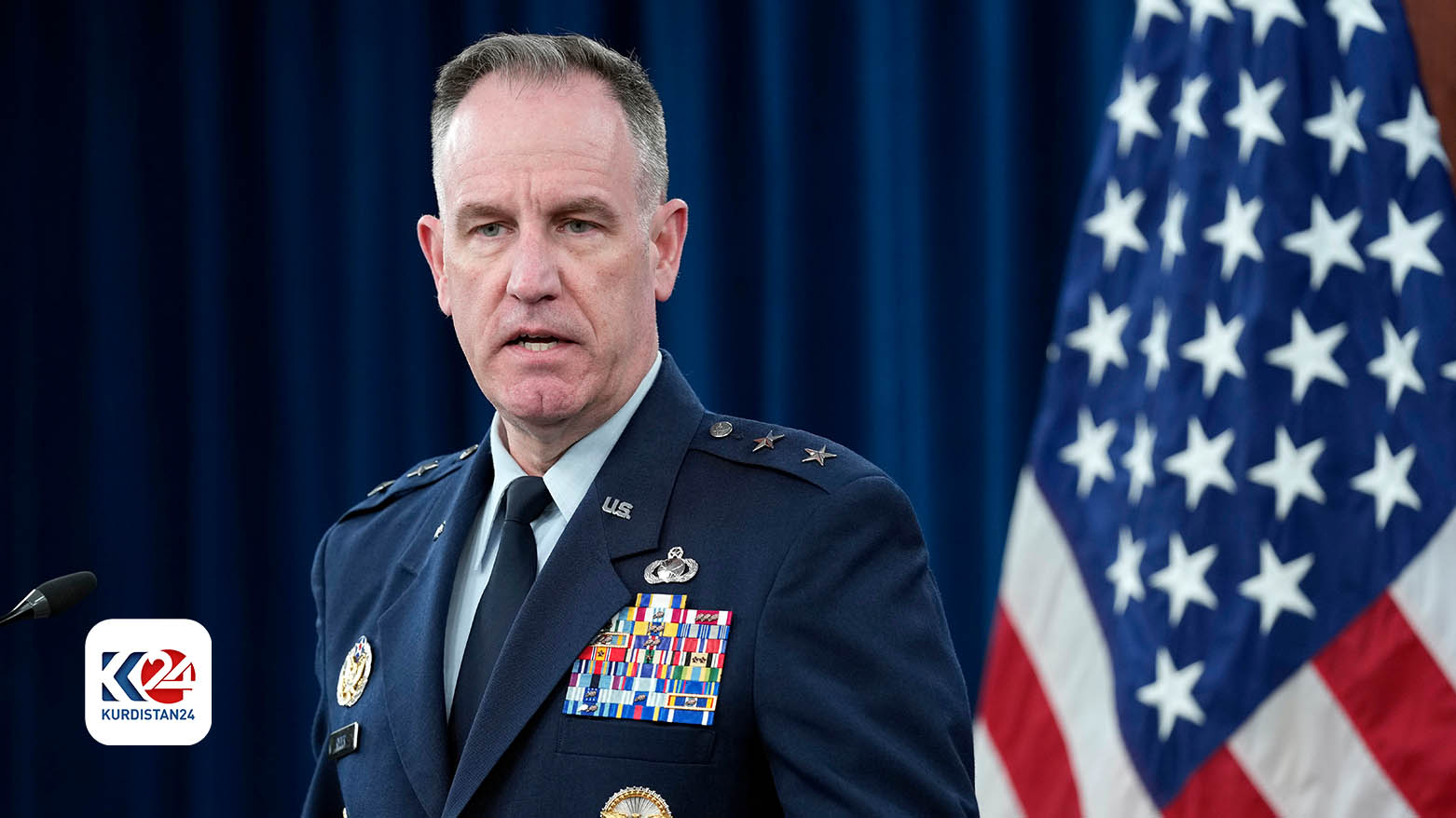US Troops Injured in Raid that Killed ISIS Leader in Iraq
“ISIS remains a threat to the region, our allies, as well as our homeland,” Kurilla said. “Along with our coalition and Iraqi partners,” we “will continue to aggressively pursue these terrorists.”

WASHINGTON DC, United States (Kurdistan 24) Pentagon Press Secretary Maj. Gen. Pat Ryder told journalists on Tuesday that two U.S. soldiers had been wounded in an overnight attack that killed the head of ISIS in Iraq, along with several other senior ISIS figures.
“Overnight, CENTCOM and Iraqi Security Forces conducted a partnered raid in Iraq, targeting several senior ISIS leaders,” Ryder said.
“The raid resulted in the death of multiple ISIS operatives,” he added, as he also explained that the two injured servicemen were in stable condition and were being treated.
Iraqi Prime Minister, Mohammed Shi’a al-Sudani, speaking earlier on Tuesday, said that eight other senior ISIS figures had been killed in the clash along with the new head of ISIS. The clash, he said, had occurred in the Hamrin mountains, which lie south of Kirkuk.
Iraq’s Joint Operations Command identified him as Jassim al-Mazrouei. who used the nom de guerre, Abu Abdel Qader. But little information is available about al-Mazrouei’s background. Who is he? How did he come to join ISIS?
Understanding ISIS
As the late Najmaldin Karim, who was born and raised in Kirkuk and became its governor in 2011, told Kurdistan 24, ISIS, at least as he saw it in Kirkuk, was predominantly local people.
They just changed their trousers for dishdashas, grew beards, and shouted Islamic slogans. But they were the same people!
“99 percent [of ISIS in Kirkuk] are local people from Kirkuk,”Karim said. “People need to understand that before [ISIS], there was terrorism—in Baghdad, in Kirkuk, in Ramadi, in Fallujah, in Mosul. In all of these places, there were terrorists.”
“Who were these terrorists?” Karim continued. “They were al-Qaeda, Naqshbandis, who are remnants of the Ba’athists, Ansar al-Sunnah, Jund al-Islam—all these banded together under the leadership of [ISIS].”
Indeed, Kurdish authorities had proof of that, Karim explained. “Peshmerga fought [ISIS bravely, and hundreds of them were killed,” he stated. “We have their pictures, their DNA. They’re all from the area.”
Read More: Najmaldin Karim: Islamic State is resurgent, dominated by locals
The U.S. has been fighting ISIS for a decade, so it is easy to sympathize with the frustration of figures like Sudani. However, part of the problem is the U.S. failure to understand the enemy that it is fighting. It sees ISIS in religious terms and fails to recognize the underlying political dimension.
Thus, it misses Karim’s point: ISIS uses an extreme version of Islam to mobilize support. That includes prompting confused and thoughtless individuals to put their lives on the line in its fight.
Iran and its proxies in Iraq have sought to force U.S. troops out of the country, and their presence is a sensitive matter. Formally, those troops, as part of the Coalition against ISIS, have an advise and assist role only. But as the raid on Monday night made clear, sometimes it also involves combat.
ISIS Not Defeated
That raid was the second time in little over a week that the anti-ISIS Coalition and the Iraqi Security Forces (ISF) launched a major assault on ISIS.
Possibly, the second raid was the product of intelligence gathered in the first raid. On Friday, Oct. 18, CENTCOM announced that four days before, the ISF had “conducted precision airstrikes in Northeastern Iraq” that killed four members of ISIS, “including a senior leader.”
The Iraqi strikes were “enabled by technical support and intelligence from Coalition Forces as part of Combined Joint Task Force-Operation Inherent Resolve (CJTF-OIR),” it said.
CENTCOM identified the slain ISIS leader as Shahadhah Salih Ulaywi al-Bajjari and explained that he used the nom de guerre, Abu Issa.
Bajjari was ISIS’s so-called “Wali” (Governor) of Kirkuk. Almost certainly, following Karim’s description of ISIS in Kirkuk, Bajjari is a local person–a Sunni Arab who lost power and status following the U.S.-led war that overthrew Saddam Hussein and his regime, and, like the rest of the ISIS leadership, he is using an extreme form of Islam to try to regain his lost standing.
The CENTCOM statement announcing Bajjari’s death concluded with an affirmation from its Commander, Gen. Michael Erik Kurilla, of the continued U.S. commitment to the fight against the terrorist group.
“ISIS remains a threat to the region, our allies, as well as our homeland,” Kurilla said. “U.S. Central Command, alongside our coalition and Iraqi partners, will continue to aggressively pursue these terrorists.”